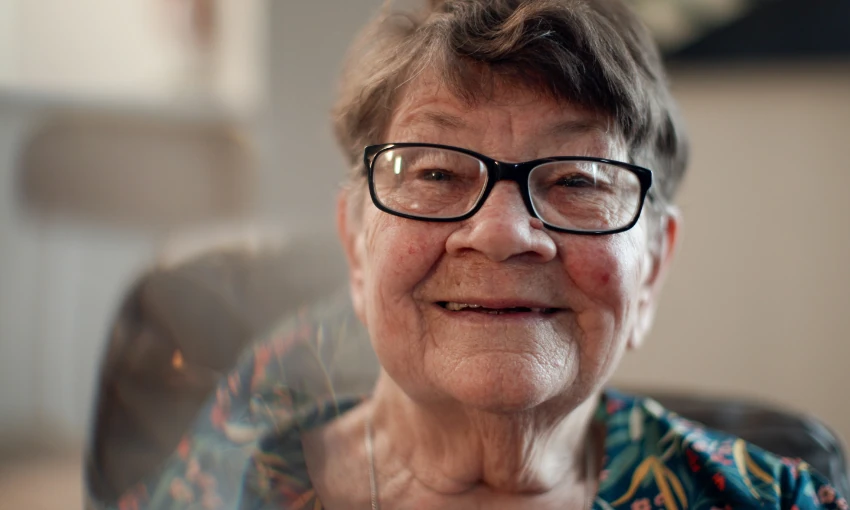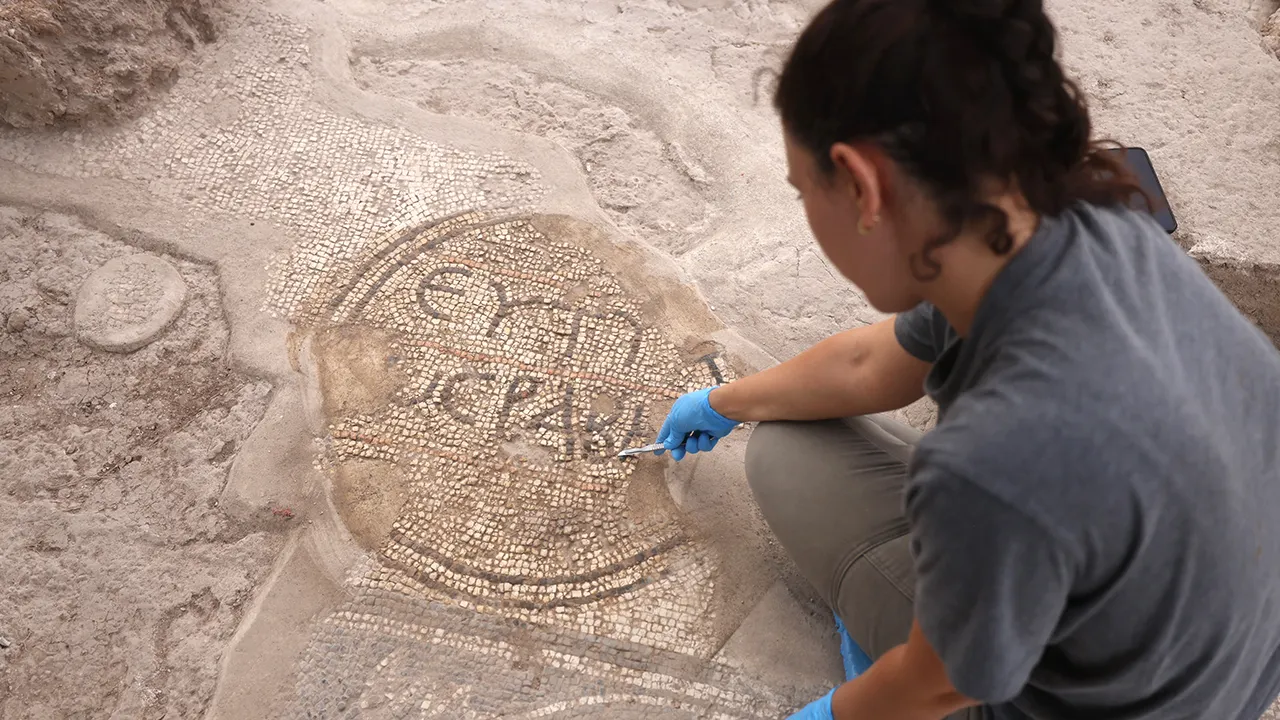By Joel MacManus
Copyright thespinoff

Joel MacManus reviews a new documentary about the prolific New Zealand author, who might just have found the secret to a happy life.
Joy Cowley is contemplating her death. In the final moments of the documentary Joy: Full & Fearless, the 89-year-old casts ahead: “When my time comes, I’ll be like a child running downhill with my arms outstretched.”
It’s a striking contrast to another scene earlier in the film. In her mid-20s, she tried to kill herself with a bottle of sleeping pills. She saw a light that she desperately wanted to reach, then woke up three days later in a hospital bed. “I was blind and paralysed, but if I had been able to walk and get up to the hospital roof and jump off, I would have done that,” she says. “There was huge disappointment that I’d come back. But on the other hand, not all the light left. Because once you lose your fear of death, there’s no fear left.”
It’s hard to hear Joy Cowley talk about death, in the same way it would be hard to hear it from my grandmother. Because that’s exactly what it feels like. Like so many other New Zealand kids, I grew up with Joy Cowley. I learned to read through the adventures of Greedy Cat, Mrs. Wishy-Washy, and the lamb who asked “Who Will Be My Mother?” As I graduated to chapter books, she was there again. I lost myself in the stories of Hunter, the escaped Māori slave boy who shares a time-spanning connection with three modern-age children lost in the bush after a plane crash, and The Silent One, about an ostracised boy on an isolated Pacific island who forms a special bond with a giant albino turtle.
I never met Cowley in person, but I can’t overstate the impact she had on my childhood. In moments of lonely primary school sadness, wondering if I would ever have real friends, I clung to Joy Cowley’s stories. In long hours alone in the library, I found solace in her words.
Somehow, without really meaning to, I’ve become a professional writer. It’s my actual job. I like to think I’m starting to get the hang of it. Earlier this year, I won a trophy for writing. It sits on my desk underneath an illustrated Greedy Cat calendar.
That never would have happened without my early love for reading. Joy Cowley played a huge part in that, and I’m forever grateful to her. It’s impossible to know how many other lives she touched in similar ways. Her books are found across New Zealand and around the world, including in at least 70% of American schools. She is so prolific that no one seems to know for sure how many books she has written – or how many she has sold.
(Full disclosure: my Dad has worked with Cowley to republish some titles that had fallen out of print. He’s found 1,796 ISBN listings to her name, though some of those are double-ups.)
The documentary takes us through some of Cowley’s literary life: the early novels that made her name, the birth of her most beloved characters, collaborations with illustrators, and friendships with other authors. She laughs about drunkenly falling into Roald Dahl’s pool, and there’s a particularly entertaining shot of Margaret Mahy dressed as a giant penguin, waddling along the street as the two head to a children’s book reading.
The inescapable theme is joy. Cowley has an infectious, awe-inspiring sense of it. She exudes it in all the little moments; when her children lightly tease her about whether she’ll ever retire, when she greets fans at a book fair, and as she moves into an ordinary-looking retirement village in Dunedin, which she describes as “heaven before we die”.
Cowley’s attitude is remarkable not because she lived a charmed life, but due to the very opposite. An abusive childhood, a schizophrenic mother, an unhappy, unloving first marriage. Four children before the age of 24, whom she briefly lost when her husband left with another woman, which triggered that suicide attempt (she regained custody soon afterwards). Those who’ve read Maggie Tweedie’s profile for The Spinoff, Finding Joy, will know some of this, but it will be new information to many viewers.
Cowley plays down much of the trauma in the documentary. She acknowledges it in the matter-of-fact way that one only can after six decades working through the emotions and emerging as a more complete person. But in archive footage, as an elegant, soft-spoken 20-something, she appears more fragile, less healed.
It was that younger Cowley who drew me in. The one for whom the pain was still fresh. Who must have been wracked with doubts, unsure if life would get better, who couldn’t know that she would grow up to find her happiness.
Adult life is bigger and more complex than childhood, but it’s still scary and sad and lonely in all the same ways. When Cowley came on stage after the premiere at The Roxy, I felt like that same little kid who used her words as support in the tumultuous world of primary school. I wanted to run down and grab her by the shoulders and demand to know her secrets: How can I be as happy as you? Is everything going to be OK? Don’t go yet, Joy, I still need you.
The film doesn’t offer an explanation for Cowley’s joy. I suppose the secret to human happiness is a bigger topic than a 60-minute documentary about a New Zealand children’s author can reasonably be expected to tackle. Still, I couldn’t resist searching for clues.
Is it her Catholic faith – so strong that her third husband left the priesthood for her, and when he suggested they become Anglicans so he could continue ministering, she refused? Is it her lifestyle? Her homes are simple and timeless as her books. Or her enthusiasm? She retains the same youthful vigour that made her want to ride motorcycles and fly planes. Did that near-death experience unlock a secret to living without fear, having already seen the light that was waiting for her? Or is it just nominative determinism – how could someone named Joy not be the happiest person in the world?
The lesson I’ve chosen to take away from Joy: Full & Fearless has to do with her relationship with young audiences. Asked why she was drawn towards children’s books rather than adult novels, she quips, “children write back”. At her peak, she received 1,000 letters a week from children, and devoted more time to replying than anyone else would think reasonable. Every shot of Cowley reading to children shows how the author comes alive. She performs a silly, sing-song voice with a cadence that is perfectly calibrated to elicit squeals of delight. At the premiere, she gave a pitch-perfect recital of My Tiger. When she hit the final line – “so my tiger ate the dental nurse” – the room beamed with innocent, nostalgic joy.
That, I think, is the secret to Joy Cowley’s happiness. When you give that much joy to the world, it comes right back.
Joy: Full & Fearless is streaming now on RNZ.co.nz



